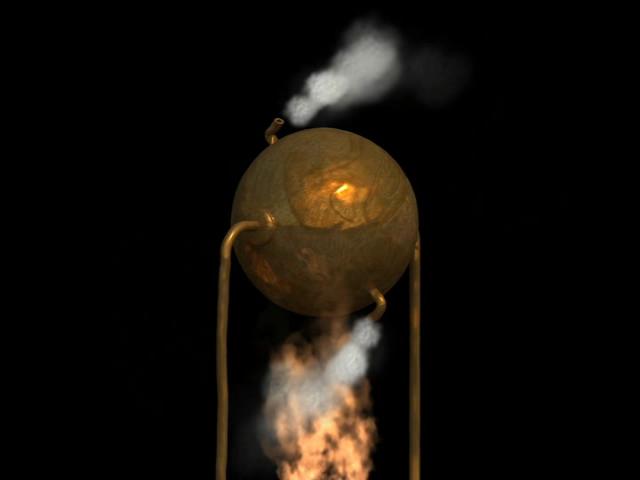 For this reason we also, since the day we heard it, do not cease to pray for you, and to ask that you may be filled with the knowledge of His will in all wisdom and spiritual understanding; Colossians 1:9
For this reason we also, since the day we heard it, do not cease to pray for you, and to ask that you may be filled with the knowledge of His will in all wisdom and spiritual understanding; Colossians 1:9
Did you know that the steam engine was invented about 100 years before the birth of Christ by a shoemaker in Alexandria, Egypt? Heronas of Alexandria noticed that when water boiled the steam had energy, so he made a metal ball with nozzles at polar opposites, filled it with water and mounted it on an axle over a fire and watched it spin. He named it “the wind machine” and used to show it off at parties.
In Colossians chapter 1, Paul prays for the Christians in Colossae, and by extension us, to be filled with the knowledge of God’s will. This isn’t a difficult thing. Knowledge is simple data, information. We have ready access to the written record of God’s will in the Scripture. All of us can be, and many of us are, filled with knowledge of God’s will. If Paul’s prayer had ended there, it would hardly have been worth praying. Knowledge is cheap, easily obtained and often completely useless on its own. I doubt Paul envisioned the number of “Bible Trivia” champions that fill our churches when he wrote this.
The tough part comes in the qualifiers. Paul prayed that we would possess this knowledge in wisdom and understanding. These are much rarer. Understanding is the ability to see the pattern, to do the puzzle, to fit the data into usable categories. In the story of Heronas, lots of people through the ages have watched a tea kettle boil and seen the pressure of the steam. Heronas not only possessed the data — fire heats water, water boils into steam, steam produces pressure, etc — he envisioned how this data could fit together into a pattern. Some of us are able to do this with the knowledge of God’s word we possess. While many see the Scripture as a series of stories and quotes, Paul wants us to see how each piece fits together to give a complete picture.
Heronas had remarkable knowledge and understanding, but he lacked wisdom. He could collect the information and form it into a whistling spinning ball with which to entertain his friends, but it wasn’t for nearly another two thousand years that anyone had the wisdom to see how to practically use the steam engine to change the world. The popular notion of wisdom is characterized by a poorly dressed man sitting on a cold mountain contemplating questions of no practical moment. This is the opposite of wisdom. Wisdom is the ability to find a practical use for the understanding of the information you have. Just like Heronas, this is where we fail. We have the most powerful information in the world, and often we spend much time and thought and effort into categorizing and fitting it together into neat patterns, but it never makes a change in our lives. God’s Word is powerful, and it is wasted when it is not put to practical use. It’s great to know that Christ died for us, but what does that mean about who He is and His claim on our lives? And why don’t we live like He owns us?

Leave a comment